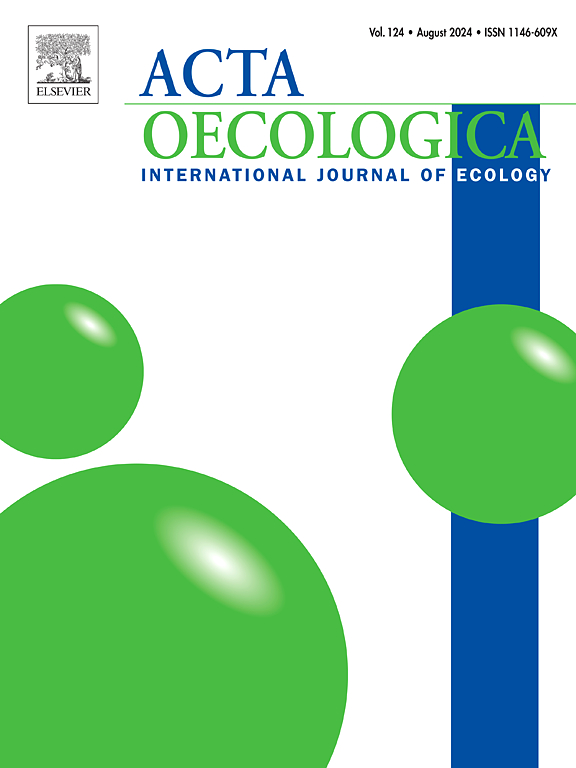The effect of desert annual plant decomposition on soil microbial community
IF 1.3
4区 环境科学与生态学
Q3 ECOLOGY
Acta Oecologica-International Journal of Ecology
Pub Date : 2024-12-14
DOI:10.1016/j.actao.2024.104051
引用次数: 0
Abstract
Desert ecosystems are characterized by harsh abiotic conditions with low annual rainfall, unpredictable in time, frequency, and dispersion. In such a system, the soil microflora should fulfill its biological and functional role by decomposing plant organic matter. This study evaluated the effect of annual-plant decomposition on soil microbial community composition and functional diversity. We assumed that the microbial functional diversity values would be related to the amount of lignin litter content.
We collected soil samples and plant litter of two annual plants, Avena wiestii and Reboudia pinnata, common in the Negev mountain area, Israel, during four seasons. Genetic characterization of the soil microbial community was carried out. Our results indicate that the presence of plant litter in the soil causes many changes in the size, composition, and diversity of a soil microbial community. Functional diversity values were affected by adjacency to litter in the four seasons. Soil and litter moisture and organic matter were affected by season and plant type. Soil and litter microbial biomass and respiration decreased as the decomposition process progressed. There was a decrease in the utilization of all four carbon groups when measuring the catabolic profile of the microbial community.
荒漠一年生植物分解对土壤微生物群落的影响
沙漠生态系统的特点是恶劣的非生物条件,年降雨量少,时间、频率和分散不可预测。在这样一个系统中,土壤微生物群应该通过分解植物有机质来完成其生物和功能作用。研究了一年生植物分解对土壤微生物群落组成和功能多样性的影响。我们假设微生物功能多样性值与木质素凋落物含量有关。本研究对以色列内盖夫山区常见的两种一年生植物紫薇草(Avena wiestii)和凤梨草(Reboudia pinnata)进行了四季取样和凋落物分析。对土壤微生物群落进行了遗传鉴定。我们的研究结果表明,土壤中植物凋落物的存在会导致土壤微生物群落的大小、组成和多样性发生许多变化。功能多样性值受四季凋落物邻近程度的影响。土壤和凋落物水分和有机质受季节和植物类型的影响。随着分解过程的进行,土壤和凋落物微生物生物量和呼吸量逐渐减少。在测量微生物群落的分解代谢谱时,所有四个碳基团的利用率都有所下降。
本文章由计算机程序翻译,如有差异,请以英文原文为准。
求助全文
约1分钟内获得全文
求助全文
来源期刊
CiteScore
3.60
自引率
0.00%
发文量
57
审稿时长
>0 weeks
期刊介绍:
Acta Oecologica is venue for the publication of original research articles in ecology. We encourage studies in all areas of ecology, including ecosystem ecology, community ecology, population ecology, conservation ecology and evolutionary ecology. There is no bias with respect to taxon, biome or geographic area. Both theoretical and empirical papers are welcome, but combinations are particularly sought. Priority is given to papers based on explicitly stated hypotheses. Acta Oecologica also accepts review papers.

 求助内容:
求助内容: 应助结果提醒方式:
应助结果提醒方式:


